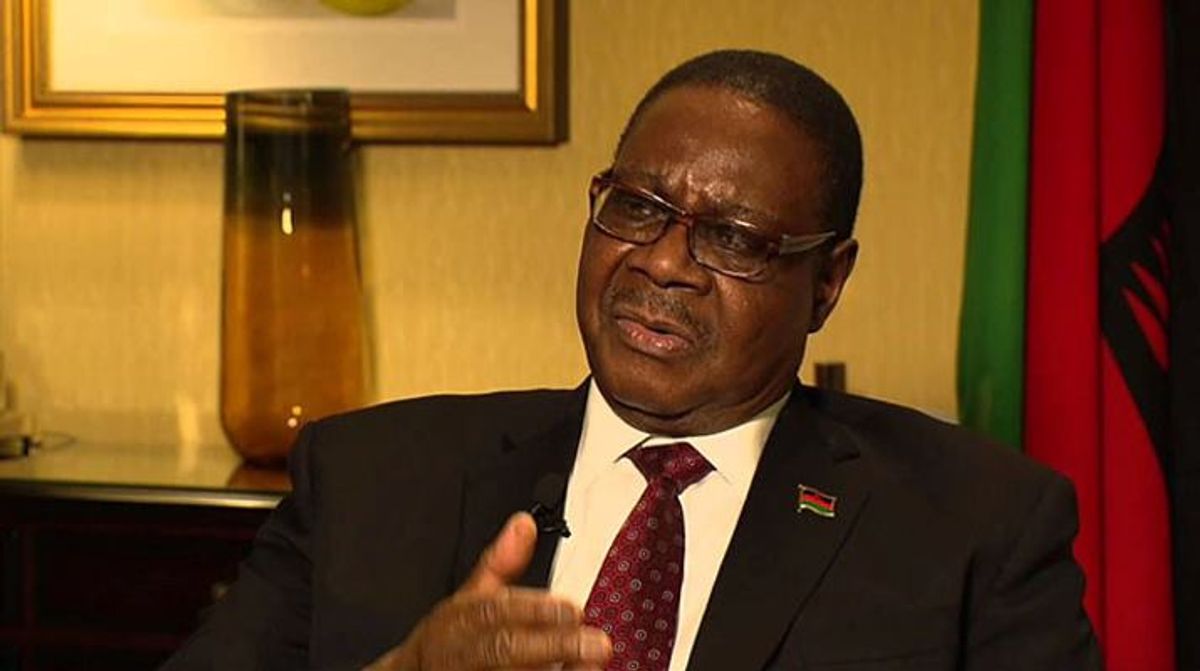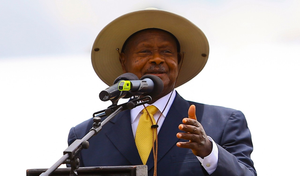

Malawis Peter Mutharika
Even if Malawian President Peter Mutharika appeals the constitutional court ruling made by the Judge Healey Potant, two days ago, that overturned the result of the May, 2019 general elections, the case has been made against electoral fraud. In the obviously-noted shenanigans made by the Malawian Electoral Commission (MEC), to return Mutharika power, it was reasonably clear that a fair court ruling would note the voter discrepancies.
Yet again, a legal precedent has been made in Africa in favour of proper electoral democratic practice. It also underlines a case for courageous judges to rule according to legal principles and morality, instead of succumbing to intimidation, bribery and blackmail.
In 2017, a precedent was made in Kenya, when Chief Justice David Maraga, overturned the declaration made by the Independent Electoral and Boundaries Commission (IEBC) that incumbent President Uhuru Kenyatta had defeated Raila Odinga.
It had been the first time an election petition had been successful in Africa. It was in the face of Kenyatta having intimidated judges, accusing them of being crooks. No doubt, this was a direct reference to what is always being said about African judges and the Judiciary, as a whole. In most cases, they are accused of accepting bribes in the incumbent’s favour. This was born out by a survey by the East African Bribery Index; and it has made the holding of the general elections a mockery.
There have been many cases in Africa of fake announcements by the respective electoral commissions, especially in favour, of the parties and leaders in power. Such have taken place in counties like Rwanda, Burundi, Togo, Gabon and Cameroon. The latest of that kind of electoral fiasco was in the Democratic Republic of Congo (DRC).
The announcement that Felix Tshisekedi had won the elections was on the back of protestations, even by the United Nations, that the elections had not been free, fair or credible. Here, in Uganda, the then-Justice Benjamin Odoki’s judgment, following the 2006 Uganda presidential poll, ruled outside the law, on circumstances which had no bearing on the petition. In Kenya, the IEBC chairman, Wafula Chebukati, even refused to step down, despite the obvious bungling of the voters’ register.
With the Malawi ruling, African democracy has once again been put on the right pedestal to practice proper elections. The opposition leader of the Malawi Congress Party (MCP), Lazarua Chakwera, against heavy odds of security and Police intimidation, held his ground and took the case to the court. He has been borne out!
Now, another problem will crop up. The court, like the case in Kenya, has left the incumbent Mutharika, at the helm of the State. Also, there is no clear indication on the position of the court towards the MEC. The possibility is that, Mutharika, will still find other ways to rig the next elections that are to be carried out in the next five months.
There have been arguments, obviously ignored by the ruling governments in power, to get “independent” electoral commissions. In so far as one lets the party in power to appoint an electoral commission, they will obviously put one in power that will listen to their interest to shift the elections in their favour.
This is a quagmire for the electoral process in Africa. An attempt by the African Union to arbitrate the DRC election turned into a farce, when the-then government of Joseph Kabila ignored their suggestions on the re-counting of the votes. The Kabila government also ignored the advice of the Catholic St. Egidio to give a fair count of the poll. And as noted, even the UN, was unsuccessful.
Then, where can African opposition parties go to ascertain that they can have a credible election? Answers are difficult to come by, except if the judges and the African Judiciary, starts to take their professional conduct, intellectual and moral bearing on their judgments, seriously. This will be no mean task against the harassment and outright, even killing of the judicial officers, by the politicians in power, who want to retain power at all costs. But if the cases like Kenya and Malawi keep piling up, there is a good possibility that electoral democracy will take root.
szumuz@yahoo.com














Ikebesi Omoding
Ikebesi Omoding is the acclaimed author of a weekly column titled: From the Outside Looking In
Leave a Comment
Your email address will not be published.